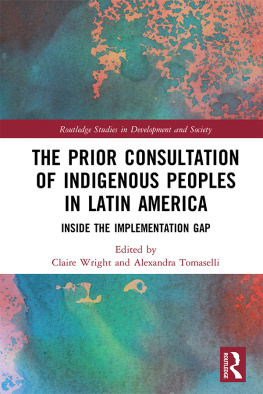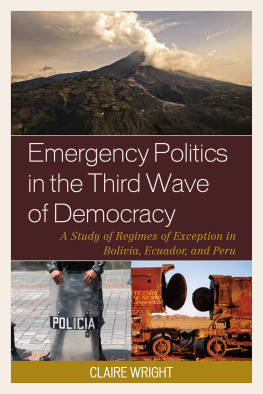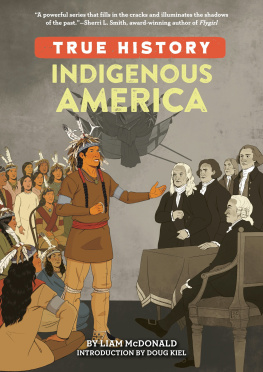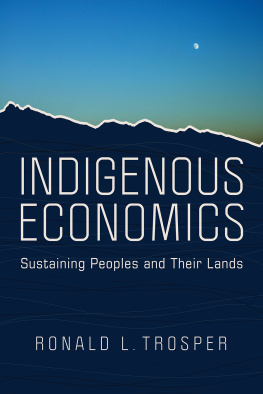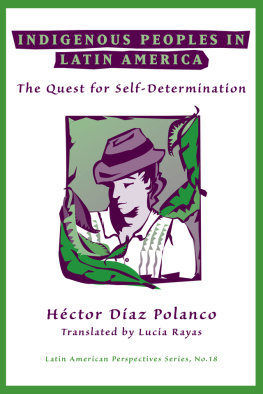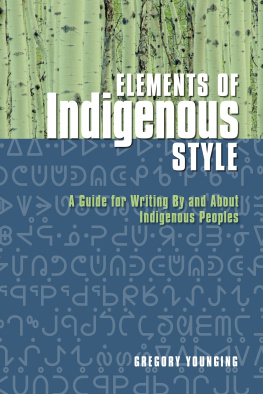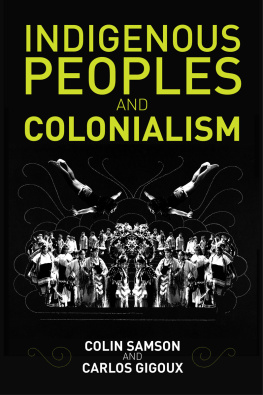The Prior Consultation of Indigenous Peoples in Latin America
This book delves into the reasons behind and the consequences of the implementation gap regarding the right to prior consultation and the Free, Prior and Informed Consent (FPIC) of Indigenous Peoples in Latin America.
In recent years, the economic and political projects of Latin American States have become increasingly dependent on the extractive industries. This has resulted in conflicts when governments and international firms have made considerable investments in those lands that have been traditionally inhabited and used by Indigenous Peoples, who seek to defend their rights against exploitative practices. After decades of intense mobilisation, important gains have been made at international level regarding the opportunity for Indigenous Peoples to have a say on these matters. Notwithstanding this, the right to prior consultation and the FPIC of Indigenous Peoples on the ground are far from being fully applied and guaranteed. And, even when prior consultation processes are carried out, the outcomes remain uncertain.
This volume rigorously investigates the causes of this implementation gap and its consequences for the protection of Indigenous Peoples rights, lands, identities and ways of life in the Latin American region.
Claire Wright (PhD in Contemporary Political Processes) is a Research Professor at the Universidad de Monterrey, Mexico.
Alexandra Tomaselli (PhD in Law) is a Senior Researcher at Eurac Research, Italy.
Routledge Studies in Development and Society
Cultures of Development
Vietnam, Brazil and the Unsung Vanguard of Prosperity
Jonathan Warren
The Role of Education in Enabling the Sustainable Development Agenda
Stephanie E.L. Bengtsson, Bilal Barakat and Raya Muttarak
The Gates Foundations Rise to Power
Private Authority in Global Politics
Adam Moe Fejerskov
Poverty Alleviation and Poverty of Aid
Pakistan
Fayyaz Baqir
Inclusive Innovation and Justice for Development
Theo Papaioannou
Feminist Advocacy, Family Law and Violence against Women
International Perspectives
Edited by Mahnaz Akhami, Yakin Ertrk and Ann Elizabeth Mayer
Civil Society in the Global South
Edited by Palash Kamruzzaman
Quality in Higher Education as a Tool for Human Development
Enhancing Teaching and Learning in Zimbabwe
Patience Mukwambo
Cultural Resistance and Security from Below
Power and Escape through Capoeira
Zo Marriage
The Prior Consultation of Indigenous Peoples in Latin America
Inside the Implementation Gap
Edited by Claire Wright and Alexandra Tomaselli
For more information about this series, please visit: www.routledge.com/Routledge-Studies-in-Development-and-Society/book-series/SE0317
First published 2019
by Routledge
2 Park Square, Milton Park, Abingdon, Oxon OX14 4RN
and by Routledge
52 Vanderbilt Avenue, New York, NY 10017
Routledge is an imprint of the Taylor & Francis Group, an informa business
2019 Claire Wright and Alexandra Tomaselli
The right of Claire Wright and Alexandra Tomaselli to be identified as the authors of this work has been asserted by them in accordance with sections 77 and 78 of the Copyright, Designs and Patents Act 1988.
All rights reserved. No part of this book may be reprinted or reproduced or utilised in any form or by any electronic, mechanical, or other means, now known or hereafter invented, including photocopying and recording, or in any information storage or retrieval system, without permission in writing from the publishers.
Trademark notice: Product or corporate names may be trademarks or registered trademarks, and are used only for identification and explanation without intent to infringe.
British Library Cataloguing-in-Publication Data
A catalogue record for this book is available from the British Library
Library of Congress Cataloging-in-Publication Data
A catalog record has been requested for this book
ISBN: 978-1-138-48806-9 (hbk)
ISBN: 978-1-351-04210-9 (ebk)
To B and S from Claire, and to F and L from Alexandra, with love.
Figures
Tables
Irati N. Barrea is a Human Rights Analyst at the United Nations Office in Honduras and a PhD Candidate in Human Rights at the Universidad de Alcal (Spain). She is a social worker and social anthropologist by training, and holds a Master of Laws (LLM) in the International Protection of Human Rights. She has complementary training in gender and development. Irati has worked in different NGOs, United Nations agencies, and State offices in the field of human rights in different countries. She has specialised in the analysis of human rights from different cultural and religious perspectives.
Laura Calle Alzate is an Adjunct Professor and Researcher at the Department of Social Anthropology and Social Psychology at the Universidad Complutense de Madrid (Spain). Laura is an anthropologist and a human rights activist, thus her research and teaching methodology emphasises a community-oriented approach. She has worked with Indigenous Peoples in Colombia since 2004. Her research ranges from the analysis of the phenomena of internal colonisation and the dispossession of Indigenous Peoples lands, to the effects of extractivism on their territories and its implications for the exercise of Indigenous autonomy and governance.
Humberto Cant Rivera is Professor at the School of Law and Social Sciences of the Universidad de Monterrey (Mexico), and Executive Director of its Business and Human Rights Institute. He holds a PhD from the Universit Panthon-Assas Paris II (France). Humberto has advised the Government of Mexico in the business and human rights treaty negotiations at the UN Human Rights Council, as well as in the development of national policies on this topic. He currently serves as the General Director remedy of the Latin American Branch of the Global Business and Human Rights Scholars Association.
Andrs Del Castillo is a Senior Legal Advisor at the Indigenous Peoples Center for Documentation, Research and Information (DOCIP), Geneva (Switzerland), where he provides legal advice for Indigenous Peoples at the United Nations, the European Union and the OECD. He is also the Focal Point before Multilateral Institutions and Guest Speaker on Responsible Business Conduct and the Creation of Shared Value at the University of Geneva and other institutions. Andrs is a Colombian lawyer with studies in International Economic Law in Brazil, and the European Union. He holds a Master's degree in International Administration Law from the Universit Panthon-Assas Paris II (France). Besides working in law firms in the private sector, Andrs has worked for UNESCO in Paris (France), ADECOM Network in Pondicherry (India), and the Office of the High Commissioner of Human Rights in Geneva.
Cathal M. Doyle is a Leverhulme Early Career Fellow at the School of Law of Middlesex University, London, UK. He is a founding member of the European Network on Indigenous Peoples, a member of the Committee on the Rights of Indigenous Peoples of the International Law Association, and a member of the boards of the Forest Peoples Programme (FPP) and the International Work Group for Indigenous Affairs (IWGIA). He specialises in the rights of Indigenous Peoples under international and national law, and the interface with business and human rights and sustainable development, with a particular focus on the right to consultation and Free, Prior and Informed Consent. He has published numerous books, reports, articles and book chapters addressing Indigenous Peoples consultation and consent rights, including

